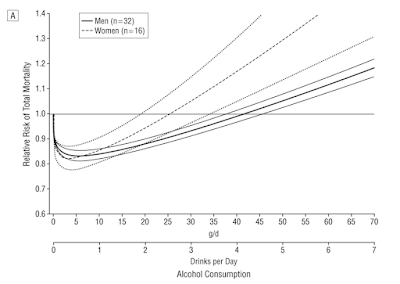For such a big story, the revolt of the Dutch farmers doesn’t seem to be getting as much international coverage as you might expect … almost as though governments and the tame mainstream media are trying to hide it:

Whether it’s the Netherlands or Canada, the story is the same across the globe. Over the past several years, elitists occupying positions of power within governments have grown accustomed to imposing their will on ordinary citizens.
It doesn’t matter that they’re blatantly violating the social contract established by their own people. For the elitist, the only item on the agenda is maintaining power and dominion over the populace, whom they view as nothing more than subjects meant to obey their diktats without question.
Avoiding such power grabs, however, requires a vigilant citizenry, whose dedication to liberty must be stronger and more widespread than elitists’ devotion to tyranny. As witnessed during the Covid regime, compliance with the state gives birth to more draconian edicts, which only continue to erode the line between democracy and oligarchy.
Make no mistake, if the Dutch farmer protesters let their foot off the gas for one second, the state will not hesitate to shove their alarmist, degrowth policies down the people’s throats without remorse. Any form of surrender will likely continue to enable more overreaching policies, which will undoubtedly infringe upon the everyday lives of Dutch people.
The other day it was reported that police had opened fire on a tractor driven by a 16-year-old. Today, the young man was released from custody without charges:
Farmers’ protests in the Netherlands have reached the royal palace at Dam Square in Amsterdam. 16-year old Jouke, who was shot at by a police officer on Tuesday, was released without charges.
Opposition leader Geert Wilders released a bombshell letter showing the globalist Dutch government wants to use expropriated agricultural land for asylum centers.
Around 40,000 Dutch farmers paralyzed traffic in the Netherlands and blocked around 20 food distribution centers over the weekend with trucks and tractors. Yesterday the protests reached Dam Square in Amsterdam and the seat of government in The Hague. The airport in Groningen was blockaded by demonstrators on Wednesday, German farmers joined the protests in Heerenberg near the Dutch-German border.
In an incident near the blockaded food distribution center at Heerenveen in Friesland, police officers shot at 16-year-old Jouke’s tractor, which was already turning away from the roadblock, missing the boy’s head by an inch (Gateway Pundit reported). Jouke and two other protestors were arrested on suspicion of “attempted manslaughter” after which an angry crowd gathered in front of the police station in Leeuwarden. All three have now been released without charges.
A farmer in Leeuwarden told Canadian journalist Keean Bexte that the Rutte government had “created a climate where the police think they can shoot”. Dutch farmers are being dispossessed and committing suicide, the protester said, while China, for example, fails to meet any environmental regulations.
[…]
Sky News Australia host Rowan Dean compared the Dutch police tactics to the violent quashing of Canadian trucker protests by uparmored riot police, calling Premiers Trudeau and Marc Rutte the “golden pin-up boys for Klaus Schwab and the globalist fantasists of the World Economic Forum.”
“The similarities between Canada and Holland are as startling as they are disturbing,” Dean said. “Only a few months ago, it was the Canadian government that attacked its own citizens in the most grotesque and terrifyingly authoritarian manner during the so-called Truckers’ Convoy when the government actually froze the bank accounts and basically starved out any individuals in what was legitimate peaceful democratic opposition to Covid (vaccine) mandates. That ended badly for Trudeau.”
At the World Economic Forum in Davos 2021, Dutch PM Marc Rutte had boasted about “Holland’s involvement with the World Economic Forum’s Global Food Innovation Hubs, which is busily ‘transforming food systems and land use'”, Dean said.
At Ace of Spades H.Q., J.J. Sefton had this to say about the protests and the repressive measures taken by the Dutch and Canadian governments toward peaceful protestors:
Mind you, this is in Holland. I’m no ethnographer, but the Netherlands is a country and people that are about as liberal, peaceful and secular as they come. Like many other European nations, they atoned for the collective guilt over what happened to its Jews during the war (among other things) by opening its borders to a massive influx of Muslim immigrants with predictable results. Strange how what happened to Theo Van Gogh was all but ignored and someone like Geert Wilders is vilified. Yet with this green madness, somehow the people have woken up to the Globalist/EU wolf at their throat. The Dutch government’s response? Crush the farmers. You have to wonder what the reaction would have been had most or even some of them had been Muslim? Meh, Muslims don’t farm. But, think about it. This is Holland. Not North Korea, Cuba, Venezuela or Iran. Holland. A supposedly enlightened European democratic society that imposes its will on people and sets the water cannon and tear gas on them for daring to object.
Well, look at Canada only a few short months ago. In the wake of the truckers’ convoy protest over forced injections, how did Justin Castreau-cescu react? Arrests, confiscation of vehicles and bank accounts, among other things. Cana-fucking-da. Now look at what that maple syrup sucking hoser is up to:
The Canadian government is funding a booklet being sent to schools across the country that teaches children to be wary of people who champion “free speech.”
Yes, really.
It’s a Paul Joseph Watson video, hence the short quote. But it says it all. Holland is no longer Holland. Canada is no longer Canada and America is no longer America. You know it. They know it. The forces that hijacked those governments and societies know it. The question is not do they know that we know? Of course they know we know. Yet they are betting the farm that we are not going to do a damned thing about it. So, okay, J.J. What about this “optimism” thing? In a sense, as Dave in FL and CBD talked about, I am optimistic in that I understand that what cannot go on will not go on. And this crap for sure cannot go on.
In Spiked, Brendan O’Neill comments on the lack of interest among the people you’d expect to be most vocal in support of working people protesting against out-of-touch, arrogant elites:
If police were opening fire on protesters in a European nation, we would have heard about it, right? If there was a mass uprising of working people in a European Union country, taking to the streets in their thousands to cause disruption to roads, airports and parliament itself, it would be getting a lot of media coverage in the UK, wouldn’t it? The radical left would surely say something, too, given its claims to support ordinary people against The System. Cops shooting at working men and women whose only crime is that they pounded the streets to demand fairness and justice? There would be solidarity demos in the UK, for sure.
Well, all of this is happening, right now, in a nation that’s just an hour’s flight from Britain, and the media coverage here is notable by its absence. As for the left in Britain and elsewhere in Europe – there’s just silence. This is the story of the revolting Dutch farmers. These tractor-riding rebels have risen up against their government and its plans to introduce stringent environmental measures that they say will severely undermine their ability to make a living. They have been protesting for a couple of years now, but their fury has intensified in recent weeks. They’ve blocked motorways, blocked roads to airports, set fire to bales of hay, and descended on The Hague. Things are so serious that yesterday, in the province of Friesland, police opened fire. Mercifully, no one was injured.
There has been some reportage outside of the Netherlands, of course. But it has been strikingly muted. And it isn’t hard to see why. This is a people’s revolt against eco-tyranny, against the modern elite’s determination to slash “harmful” emissions with little regard for the consequences such action will have for working people and poor people. To the formers of elite consensus opinion, for whom environmentalism is tantamount to a religion, the sight of pesky little people rebelling against green diktats is too much to bear. So they either demonise these dissenters, as is happening in the Netherlands, or they ignore them in the hope they will go away, as is happening outside the Netherlands.
The farmers have a very good case. Their concern is that the government’s plans for slashing greenhouse gases will hit farming – and other industries – very hard indeed. The targets, introduced last month, commit the Netherlands to halving its use of nitrogen compounds by 2030. The government says emissions of nitrogen oxide and ammonia, both of which emanate from livestock, will need to be drastically cut. This will entail farmers getting rid of vast numbers of their livestock, potentially devastating their livelihoods. Fishermen are concerned, too. As of next year, fishing permits will be given out on the basis of the eco-friendliness of the trawler the fisherman is using, and many are worried that they’ll end up permit-less, unable to earn a living. They have blocked harbours in solidarity with the farmers. The construction industry could also suffer. Courts have blocked numerous infrastructure projects on the basis that the emissions they cause will breach the new eco-rules.


















